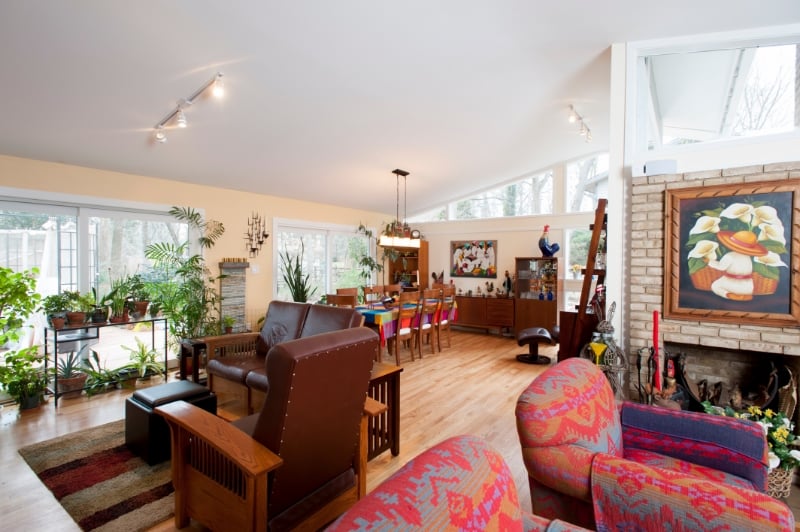As your family expands and your lifestyle evolves, you may find yourself outgrowing your home. Maybe it isn’t spacious enough to suit your rambunctious children. Or perhaps it lacks the space to accommodate the home office or game room you've been dreaming of. The fact is, not all houses are built with enough master bedrooms, bathrooms, and other spaces to work for their homeowners year after year without change.
 Building onto your existing home offers a solution to increase your active living space without having to pack up and find more elsewhere. Not only can a custom addition add space and luxury to your home, it can up the resale value dramatically. It also presents you with exciting design opportunities to creatively reinvigorate your everyday living quarters.
Building onto your existing home offers a solution to increase your active living space without having to pack up and find more elsewhere. Not only can a custom addition add space and luxury to your home, it can up the resale value dramatically. It also presents you with exciting design opportunities to creatively reinvigorate your everyday living quarters.
Before you embark on a home addition project, there are a few questions you should consider.
- Who do I need to hire? Although some homeowners choose to hire on an architect, this is often an unnecessary expense unless your addition is particularly complex or detailed. An experienced design-build contractor can help you design a home addition that suits your unique needs and tastes before bringing your project to fruition. Going straight to a contractor will also save you time and money.
- How much should I spend? You should look to other properties in your neighborhood to determine how much you should spend on your addition. For example, if you have a $400k home in a neighborhood of $1 mil+ properties, building an addition makes a lot of sense. However, if you have a $400k home in a neighborhood of properties that are all roughly the same price, adding a $200k addition may not be worth it.
You should also look at the average number of bedrooms and bathrooms, and the average overall size of the houses in your area. This can help you determine what your budget makes sense for your project. - How will you finance the project? There are a variety of options available for homeowners to finance their home addition project. For instance, you can pull from a home equity loan or tap into a home equity line of credit. If your credit is in good standing, you may also qualify for a Title 1 Property Improvement Loan from a private lender.
- How can you keep the costs down? You may be able to bring the cost of your project down substantially by building an addition within the existing structure of your home—for instance, within a basement, attic, or screened-in porch space. Additionally, you can keep costs down by avoiding unnecessarily expensive finishing, tiles, and fixtures.
The overall cost of your project will also be affected by the type of room you are building. Bedrooms and recreational spaces are on the more inexpensive end of the spectrum, which kitchen additions tend to be the most costly. - Are you prepared for the inconveniences? Most addition projects take at least three months and often longer, so you should be prepared to deal with noise, clutter, and the coming and going of builders for several months. If you are building a kitchen, you may have to decide whether you will eat out or find an alternative way to prepare food. If you are building a second-story addition, you may need to leave your home for more than a month while the roof is removed, and the electricity for your home will have to be shut off for a period of time, so you may have to empty your refrigerator and freezer.
- Do you have enough space? If you don’t have enough space on your property to add a sufficiently sized addition, you may want to consider building up instead of out. Before finalizing plans, you should talk to the homeowners association in your area to be sure your addition is up to code.
There’s a lot to think about before beginning your home addition project, and the process may initially seem overwhelming. Don’t think you have to figure it out on your own—your contractor should be able to answer any questions you are uncertain of, and help you plan a home addition that abides by local building ordinances while accommodating your family’s unique needs, preferences, and goals.

